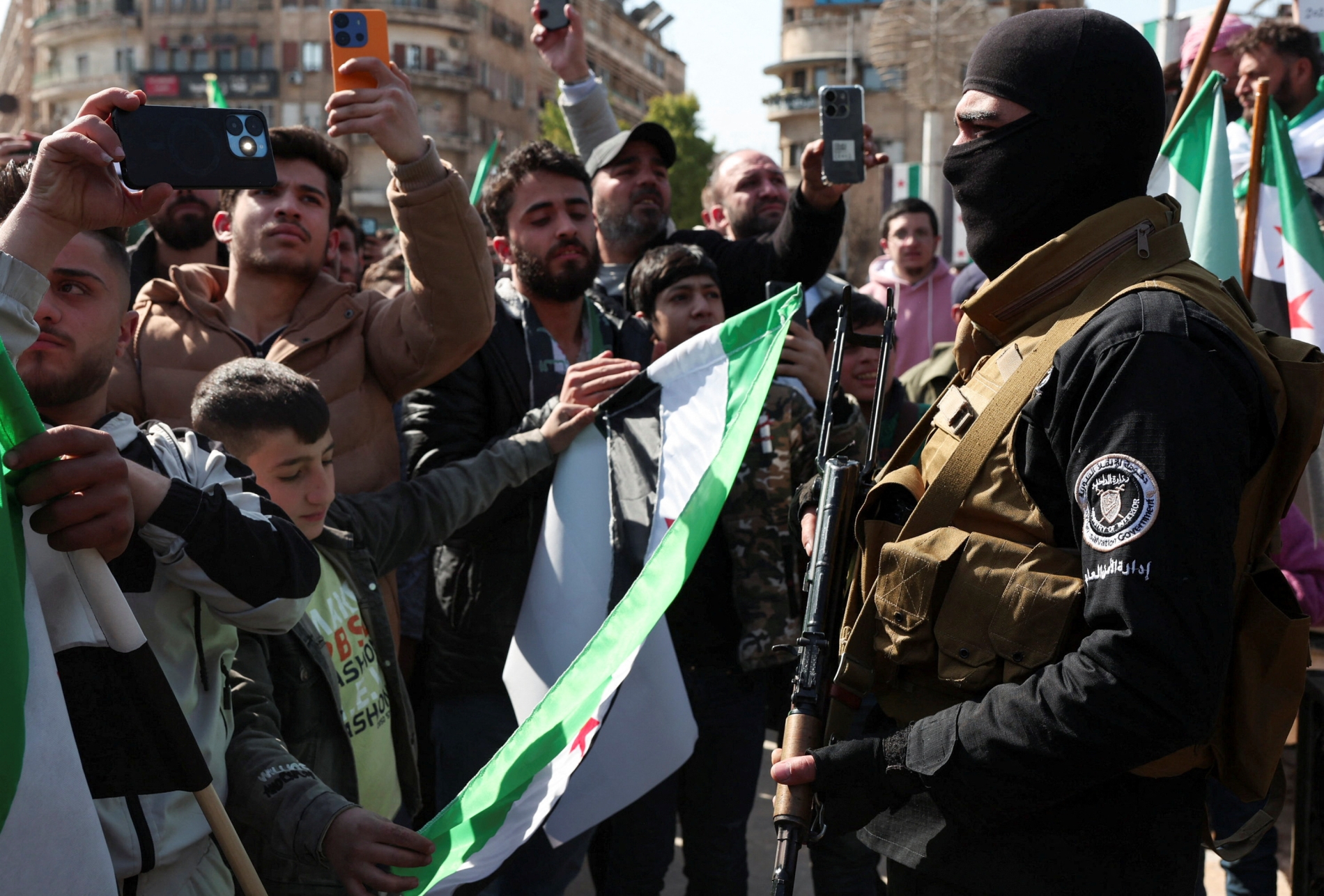On 6 March, gunmen loyal to the former Assad regime killed at least 13 security personnel in coordinated raids and ambushes on military checkpoints and headquarters near Jableh in Latakia’s countryside. Some fighters seized military zones in the Latakia mountains to launch further attacks, while others entrenched themselves in Jableh city.
Shortly after the assault, an Assad-era military commander released a video announcing the formation of a resistance group called the “Coastal Shield Regiment” to oppose the new government. While sporadic attacks have occurred since the regime’s collapse three months ago, this assault represents the most significant security challenge Syria’s new authorities have so far faced.
The caretaker government responded swiftly, deploying large reinforcements—including air cover, tanks, and heavy weaponry—from other governorates to the coastal region. Fierce clashes erupted, particularly around Jableh, where the ambushes took place. Reports indicate that over 70 people were killed, and several regime loyalists have been arrested. Security forces have since declared the situation under control, imposing a curfew in Latakia and Tartous.

While the small group involved in this escalation stands little chance of holding their ground against the forces of the new Syrian government, the recent escalation carries risks that extend far beyond the immediate violence.
The real danger lies in the sectarian tensions this attack has inflamed—tensions that Syria’s caretaker authorities are ill-equipped to contain, especially amid deepening financial hardship, instability, and deteriorating public services. Unresolved issues of justice and accountability, including human rights violations committed after the regime’s fall, further exacerbate public anger. This volatile mix, if left unaddressed, could ignite into a larger crisis at any moment.
Explict warning
Given the timing and intensity of attacks, fingers have already begun pointing at Iran, suspected of encouraging the attack. In fact, just days earlier, Turkish Foreign Minister Hakan Fidan issued an explicit warning to Tehran over any attempt to destabilise Syria.
In a televised interview with Arab media, he sharply criticised Iran’s regional policies—particularly its approach to Syria’s new authorities and warned that other countries could respond in kind, hinting that Iran itself might face similar interference.
“If you try to create instability in another country by supporting a certain group, then another country may do the same to you in return," he said.
Tehran responded quickly but carefully. While avoiding the term "summoning," Iran’s Foreign Ministry reported it held a "conversation" with Türkiye’s ambassador, during which the Iranian side criticised Fidan’s remarks as “inappropriate” and warned that “inaccurate analyses and inflammatory comments” could fuel tensions.













